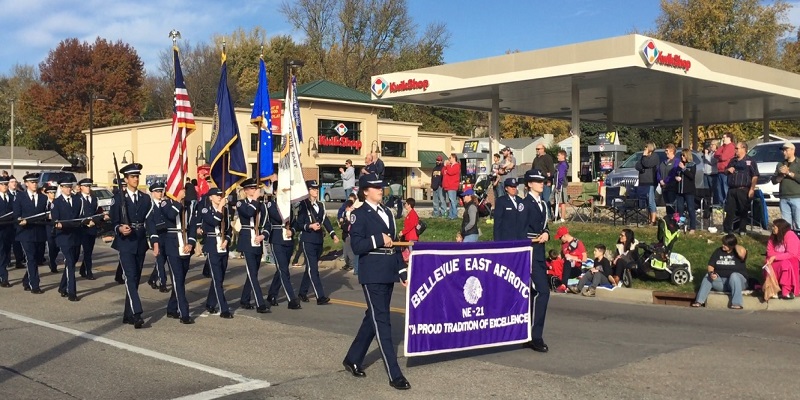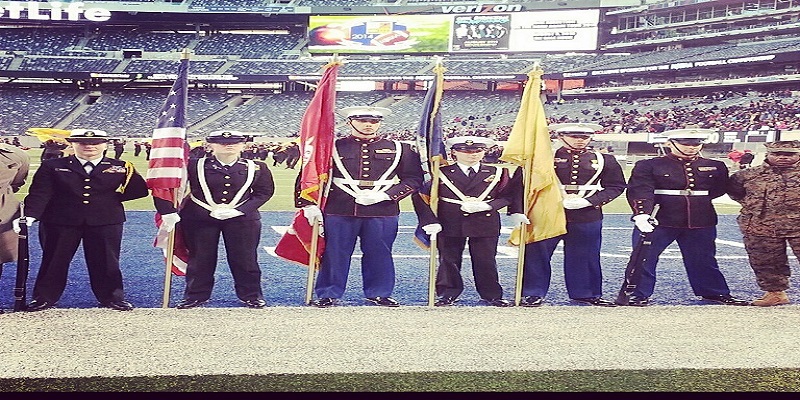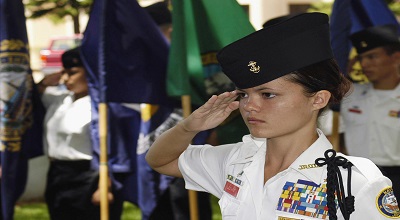JROTC Service Learning Projects
JROTC Service Learning Projects: The Junior Reserve Officers’ Training Corps (JROTC) is a program designed to instill leadership, discipline, and civic responsibility in high school students. One of the most impactful components of the JROTC curriculum is service learning projects, which combine community service with structured learning objectives.
These projects not only benefit the community but also provide cadets with hands-on experiences that enhance their personal growth, leadership skills, and understanding of civic duties. In this article, we will explore the concept of service learning in JROTC, its importance, the types of projects cadets undertake, and how these projects are structured. Additionally, we will address frequently asked questions about JROTC service learning projects.
More Here: Vpower 777 APK
What is Service Learning in JROTC?
Service learning is an active and experiential learning strategy where students engage in organized activities that address community needs while achieving specific learning objectives. Unlike traditional community service, service learning integrates reflection and academic learning into the process, ensuring that cadets not only contribute to their communities but also gain valuable insights and skills. In JROTC, service learning projects are designed to:
- Foster leadership and teamwork.
- Encourage civic responsibility.
- Provide real-world applications of classroom lessons.
- Develop problem-solving and critical-thinking skills.

The Importance of Service Learning in JROTC
Service learning is a cornerstone of the JROTC program because it aligns with the program’s mission to “motivate young people to be better citizens.” Here are some key reasons why service learning is vital in JROTC:
- Personal Growth: Cadets develop self-confidence, empathy, and a sense of accomplishment through meaningful service.
- Leadership Development: Projects often require cadets to take on leadership roles, plan activities, and manage teams.
- Community Impact: Service learning addresses real-world issues, making a tangible difference in local communities.
- Academic Integration: Cadets apply classroom knowledge to practical situations, enhancing their understanding of subjects like history, government, and science.
Types of JROTC Service Learning Projects
JROTC service learning projects are diverse and tailored to meet the needs of the community while aligning with the interests and skills of cadets. Below are some common types of projects:
1. Environmental Projects
Environmental projects focus on sustainability and conservation. Examples include:
- Organizing community clean-up events.
- Planting trees or creating community gardens.
- Educating the public about recycling and waste reduction.
2. Social Welfare Projects
These projects aim to support vulnerable populations in the community. Examples include:
- Hosting canned food drives to combat hunger.
- Volunteering at homeless shelters or food banks.
- Collecting and distributing clothing or school supplies for underprivileged families.
3. Educational Outreach
Educational projects involve cadets teaching or mentoring others. Examples include:
- Tutoring younger students in subjects like math or reading.
- Conducting workshops on leadership or teamwork for peers.
- Organizing STEM (Science, Technology, Engineering, and Math) fairs to inspire interest in these fields.
4. Health and Wellness Initiatives
These projects promote physical and mental well-being. Examples include:
- Organizing blood donation drives.
- Hosting fitness challenges or health awareness campaigns.
- Supporting mental health initiatives through workshops or peer counselling.
5. Veteran and Military Support
Given the military affiliation of JROTC, many projects focus on supporting veterans and active-duty service members. Examples include:
- Writing letters or creating care packages for deployed troops.
- Assisting at veterans’ homes or hospitals.
- Organizing events to honor veterans, such as parades or ceremonies.
6. Disaster Relief and Emergency Preparedness
Cadets often play a role in disaster response and preparedness. Examples include:
- Assisting with disaster relief efforts, such as distributing supplies after a hurricane.
- Conducting emergency preparedness training for the community.
- Partnering with local agencies to develop disaster response plans.

Phases of a JROTC Service Learning Project
JROTC service learning projects are typically carried out in three phases:
1. Preparation
During this phase, cadets identify a community need, research potential solutions, and develop a project plan. This includes setting goals, assigning roles, and gathering necessary resources.
2. Action
The action phase involves implementing the project. Cadets work collaboratively to execute their plan, whether it’s organizing an event, providing a service, or creating educational materials.
3. Reflection
Reflection is a critical component of service learning. After completing the project, cadets evaluate their experiences, discuss what they learned, and consider how they can apply these lessons in the future.
Benefits of JROTC Service Learning Projects
JROTC service learning projects offer numerous benefits for cadets, schools, and communities:
- For Cadets: Improved leadership skills, enhanced academic performance, and a stronger sense of civic responsibility.
- For Schools: Strengthened relationships with the community and a positive reputation as a hub for civic engagement.
- For Communities: Addressed local needs and increased awareness of social issues.
Challenges and Solutions in Service Learning
While service learning is highly rewarding, it can also present challenges. Common issues include:
- Limited Resources: Cadets may face budget constraints or a lack of materials. Solution: Seek partnerships with local businesses or organizations for support.
- Time Management: Balancing service learning with academic and extracurricular commitments can be difficult. Solution: Develop a clear timeline and delegate tasks effectively.
- Community Engagement: Gaining community buy-in can be challenging. Solution: Communicate the project’s benefits clearly and involve community members in the planning process.
FAQs About JROTC Service Learning Projects
1. What is the difference between community service and service learning?
Community service involves volunteering to meet a community need, while service learning integrates academic learning and reflection into the service experience. Service learning is more structured and focuses on both community impact and personal growth.
2. How are service learning projects selected in JROTC?
Projects are typically chosen based on community needs, cadet interests, and alignment with JROTC learning objectives. Cadets often conduct research and propose project ideas during the preparation phase.
3. Do all JROTC cadets participate in service learning projects?
Yes, service learning is a core component of the JROTC curriculum. All cadets are encouraged to participate, as these projects are designed to enhance their leadership skills and civic awareness.
4. How do service learning projects benefit cadets academically?
Service learning projects provide real-world applications of classroom lessons, helping cadets better understand subjects like history, government, and science. They also develop critical thinking, problem-solving, and communication skills.
5. Can JROTC service learning projects be done in collaboration with other organizations?
Absolutely! Many JROTC units partner with local nonprofits, schools, and government agencies to maximize the impact of their projects. Collaboration also provides cadets with valuable networking opportunities and resources.
Conclusion
JROTC service learning projects are a powerful way to combine education, leadership development, and community service. By addressing real-world issues, cadets not only make a positive impact on their communities but also gain invaluable skills and experiences that prepare them for future success. Whether it’s organizing a food drive, planting trees, or supporting veterans, these projects exemplify the JROTC mission of building better citizens.
